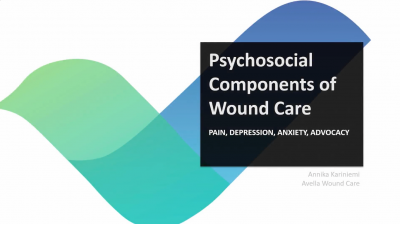
Practice Perfect 914
Retirement Planning: Start Early
Retirement Planning: Start Early

This is for all you graduate podiatric residents, about to start on the next stage of your professional journey. In fact, if you’re willing to take some of the advice I’m going to give, this editorial will be one of the greatest gifts anyone can give you. Many years ago, and many Practice Perfects ago, I wrote an editorial in Practice Perfect 311 about retirement. At the time, my goal was to retire by 55 years-old to pursue other endeavors unrelated to podiatry. Today, at 51 years old, I’m not likely to retire by 55, but 59 years old is now a more realistic goal. I’d like to recommend some advice that will give you the opportunity to pursue retirement at almost any age. Before I do so, I’d like to mention that my wife, Melissa, is the real financial guru of the family, and our ability to retire will depend mostly on her knowledge and planning – I’m lucky to have her in not only monetary ways but in life!
Recommendation 1: Get Educated
Investing, whether it’s for future retirement or you want to become a gazillionaire, is complicated. There are a very large number of ways to invest and places to put your money, and which of these you choose will require you to be knowledgeable. My first mistake in life was being completely uninterested in money. For a number of reasons (personal penchant, life’s responsibilities, etc) I focused very little time on investing in the future. Similarly, my wife also did not pursue an education in finance (Especially while raising two children!), until relatively recently. What I can say is that her recent interest, along with a bunch of savvy, has made her a very effective investor. Up until recently, we were probably about 15 years behind our goal timeframe, and by educating herself and applying her knowledge, my wife has brought us only 4 years behind our goal.
Recommendation 2: Start Early
I’m sure I’m not stating anything groundbreaking when I say to recall the power of compounding. However, in order for this to work, you have to start early. Let’s say you received a $6000 signing bonus for joining that sexy podiatry practice (or you have $6000 from any other source), and instead of blowing it on a vacation, you decide to invest it in a retirement account with an interest rate of 6% per year, and you then contribute only $500 per month for the next 30 years. That investment, in 30 years, becomes $508,810.1 This investment amount is actually quite small. If your company has a 401k or 403b, contribute to it and maximize your contribution. They will match your contribution, usually up to around 4%. This is free money that builds over time.
Recommendation 3: Live Below Your Means
When you start out in practice, you’re (hopefully) going to make a lot more than you did in residency. That extra money will look like a lot, but it’s not as much as you think. You might want to buy a new car, a new house, or a number of toys to fill up that new house. You might want to take an expensive vacation. It’s understandable to feel this way. You just put in 7 or more years of your life into education, and that’s just for podiatry. Resist the urge. Live below your means. Keep that belt tight for the first several years of your practice. My family has lived well below our means for many years, and we still manage to have a good life.
When it comes to a house, Forbes magazine describes the 28% rule, in which no more than 28% of your gross monthly income should go toward your mortgage.2 Similarly, they describe a 25% post-tax model in which your mortgage bill should be no more than 25% of your after tax (net) income. Now, at the time of this editorial the interest rates in the United States are not favorable for home buyers, but that’s likely to change eventually, and when it does that may be the time to jump into the market. Some banks give mortgage loans at lower rates and/or lower down payments for doctors, so seek them out.
Recommendation 4: Plan for the Unexpected
Tragedies can happen at any time, and it’s in your best interest to be ready. Life insurance will keep your family stable in case of your death. It is cheaper to start a plan when you’re young and healthy, and you might consider a relatively high amount. My wife and I initially included our children’s’ college education as well as living expenses for my wife if I were to pass away. That required a larger amount of money. Now, as I’ve gotten older and the kids are leaving the nest, that life insurance is less necessary, so we have reduced the limits.
Similarly – and perhaps just as important – is disability coverage. Perhaps you’re injured in some way that limits or prevents you from working. How would you afford to live? I suggest looking for “own occupation” disability. This specific type of disability that pays you a percentage of what you were previously making if you are injured, able to continue working but with limitations. For example, let’s say I accidentally lost my left hand. I would not be able to practice podiatric surgery (at the very least), so I would not be able to do about 60% of my practice. My insurance would then pay 60% of my disability, while I continued to be part of my practice or start a new job. Yes, there are significant expenses with life and disability insurance, but they’re well worth it for both piece of mind and if something were to happen to you.
Recommendation 5: Look for Passive Income
This brings us more to the speculative side of things, but it is also very important. Passive income is that which does not require your consistent input in order to keep making money. Practicing podiatry day to day is active income, bringing you money as a result of your working. However, investing in, say, a surgery center, will bring you a periodic dividend. Having passive income is the key to financially independence (not dependent on your regular income). If you are financially independent as a result of a number of passive investments, then you can retire any time you want.
Recommendation 6: Build Your Savings
It’s generally recommended that you build up your savings to an amount equal to at least 6 months’ worth of your income. This protects you in case of illness or injury (disability insurance doesn’t usually start paying for 6 months), provides you a buffer in case of unexpected bills, and affords piece of mind. Building that savings also allows you to invest in that passive income when the opportunities arise.
Recommendation 7: Get Help
As your income builds and your portfolio becomes more complex, it may be helpful to hire a financial advisor. Receiving expert help can make a huge difference. However, look around carefully and do your due diligence. There are a lot of advisors who are just representatives of companies that will try to sell you things. Ask for advice from those around you who are knowledgeable and will direct you to the right advisor. Local investing clubs are also very popular and might be a way to receive advice and education.
Recommendation 8: Interest Rates Matter
It’s important to consider interest rates, especially as associated with your financial aid loans. Currently, rates are somewhat high, but you should watch those rates. If your medical school loans have a high interest rate, consider refinancing them when the interest rates drop. If you have a loan with a low interest rate (for example, 3.5% or so), do NOT pay off your loans early. Instead use that money to invest in other things that bring a greater interest rate to you. For example, let’s say I have financial aid loans with a 3.0% interest rate. Instead of paying that off, I would pay the minimum bill monthly, and invest my extra money in something that brings me, say, 6% (not even a high rate of return, especially when you consider index mutual funds bring an average of around 10% over time). I’ve now made an extra 3% instead. Keep doing that and watch your portfolio grow.
As a final piece of advice, make sure that you’ve paid off any and all credit card debt and do NOT allow it to accumulate. Interest rates on credit cards are very high and paying them back over years sucks your personal profit like a highly effective vampire. Yes, you should have a couple of credit cards – they’re important to build your credit score, a very important number when you buy a house or car – but pay off every month whatever you put onto them. Not doing so is the destroyer of personal wealth.
As residency graduation approaches, accept my congratulations and my excitement for you to enter this new and exciting phase of your life and my best wishes on your financial futures.
Best wishes.

Jarrod Shapiro, DPM
PRESENT Practice Perfect Editor
[email protected]

-
Security and Exchange Commission Compound Interest Calculator. https://www.investor.gov/financial-tools-calculators/calculators/compound-interest-calculator. Last accessed 5-27-2024.
Follow this link -
Zinn D and Patoka J. https://www.forbes.com/advisor/mortgages/mortgage-to-income-ratio/. Last accessed 5-27-2024.
Follow this link
































Comments
There are 0 comments for this article